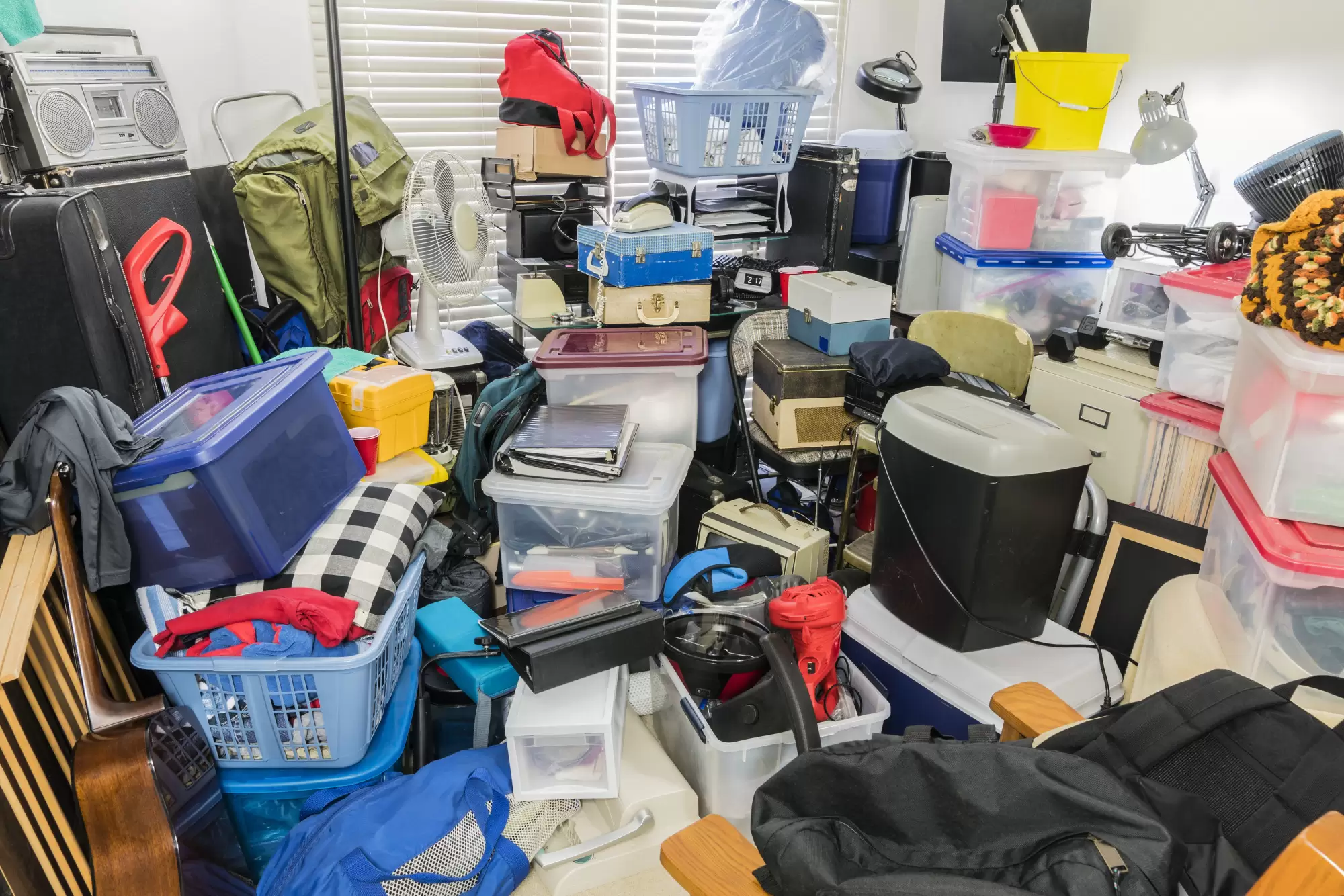

Hoarder room packed with stored boxes, electronics, files, business equipment and household items.
Hoarding is no joke. 1.5% to 4% of adults and 2% of adolescents suffer from hoarding. This makes the condition more prevalent than schizophrenia.
Many people have impressions of what a hoarder is like, and some of those impressions are accurate. But few people realize that hoarding is a progressive condition. The signs of a hoarder can be apparent early on, and you can spot these signs and get someone help.
What are the early signs of hoarding? How does a hoarder feel, act, and rationalize their hoarding? What can you do to help resolve a case of hoarding?
Answer these questions and you can be part of the solution for hoarding in no time. Here are seven signs you should look for.
One of the classic warning signs of hoarding is the inability to put stuff in the trash. Someone may get angry or sad when someone tells them to throw something away. They may express extreme anxiety about discarding items, even if their items are of no use to them.
It is okay for someone to keep a collection of items that have value. A collection becomes hoarding when the items are of no value, like broken appliances.
Even though they say they are trying to maintain them, someone with a hoarding problem may not maintain their items well. They may stack them on top of each other and not clean them.
If a hoarder has someone over, they may follow the person around. When the guest touches a belonging, the hoarder may insist that they put it down, even if the guest is being gentle.
Hoarders try to rationalize their hoarding. They may say that they are saving their items for their children or grandchildren. They may become afraid that they will run out of their supplies, and they talk about their fears repeatedly.
Hoarders do not leave their homes often, but when they do, they go shopping. While they are at the store, they may feel the temptation to buy a random item, and they may bring it home only to never open it.
One or more rooms in a hoarder’s house may be filled with items. The rest of the house may be navigatable, but the floors are filthy and the water and electricity are not working. Their clutter may impede their ability to take care of themselves.
You should not try to clean a hoarder’s house by yourself. You should get help from professionals and visit websites like stressfreejunkhauling.com to see what resources are available to you.
Hoarders may not invite people over out of fear that they will steal their items or judge them. They may block the windows and doors, and they may decline to go to events so they do not have to talk about how to stop hoarding.
The signs of a hoarder can be apparent almost immediately. Someone may not be able to throw things away, even items of no substantial value. They may become protective of their belongings, refusing to let others touch or borrow them.
Hoarders may obsess over losing items or not having enough of something. They may buy things on a whim, not knowing why they are buying them. Their items may fill entire rooms or floors, and they may shut themselves off from the world.
Hoarding is significant yet curable. Read more guides to hoarding by following our coverage.
Hey there! Ready to embark on a historical journey with Air India? Whether you're a…
In 2017, altcoins were seen as experimental side projects to Bitcoin. By 2021, they became…
Shopping centers in Las Vegas have a unique opportunity to stand out by offering not…
Levitra, a widely recognized medication for treating erectile dysfunction (ED), has proven to be a…
Have you ever looked down at your carpet and wondered if there’s a budget-friendly way…
Counter-Strike 2 (CS2) has elevated the thrill of case openings, captivating both seasoned CS:GO veterans…